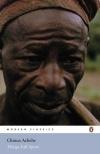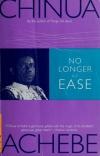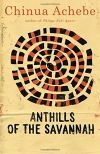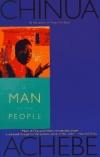
Things Fall Apart tells two intertwining stories, both centering on Okonkwo, a “strong man” of an Ibo village in Nigeria. The first, a powerful fable of the immemorial conflict between the individual and society, traces Okonkwo’s fall from grace with the tribal world. The second, as modern as the first is ancient, …

Things Fall Apart is a post-colonial novel written by Nigerian author Chinua Achebe in 1958. It is seen as the archetypal modern African novel in English, one of the first to receive global critical acclaim. It is a staple book in schools throughout Africa and is widely read and studied in English-speaking countries …

Things Fall Apart is a post-colonial novel written by Nigerian author Chinua Achebe in 1958. It is seen as the archetypal modern African novel in English, one of the first to receive global critical acclaim. It is a staple book in schools throughout Africa and is widely read and studied in English-speaking countries …

No Longer at Ease is a 1960 novel by Nigerian author Chinua Achebe. It is the story of an Igbo man, Obi Okonkwo, who leaves his village for a British education and a job in the Nigerian colonial civil service, but struggles to adapt to a Western lifestyle and ends up taking a bribe. The novel is the second work in …

Anthills of the Savannah is a 1987 novel by Nigerian writer Chinua Achebe. It was his fifth novel, first published in the UK 21 years after Achebe's previous one, and was credited with having "revived his reputation in Britain". A finalist for the 1987 Booker Prize for Fiction, Anthills of the Savannah has been …

Arrow of God is a 1964 novel by Chinua Achebe, his third novel after No Longer At Ease. These two books, along with the first book, Things Fall Apart, are sometimes called The African Trilogy, as they share similar settings and themes. The novel centers on Ezeulu, the chief priest of several Igbo villages in Colonial …

A Man of the People is the fourth, and a satirical, novel by Chinua Achebe. The novel is a story told by the young and educated narrator, Odili, his conflict with Chief Nanga, his former teacher who enters a career in politics in an unnamed modern African country. Odili represents the changing younger generation; …

"A rare opportunity to glimpse a bit of the man behind the monumental novels." --Chicago TribunePowerful and deeply personal, these three essays by the great Nigerian author articulate his mission to rescue African culture from the narratives written by Europeans. Looking through the prism of his experiences as a …

 English
English Español
Español Deutsch
Deutsch
